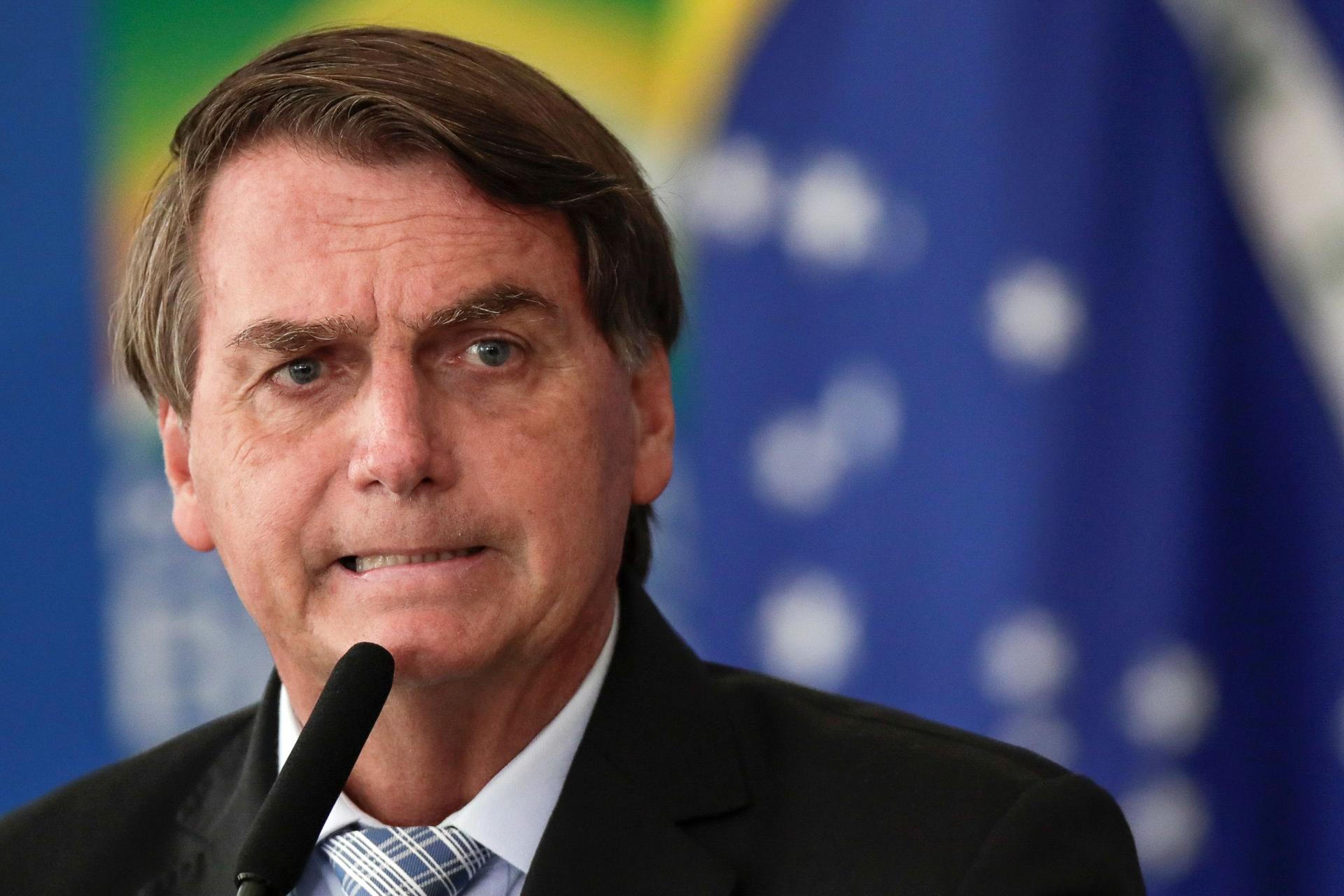SÃO PAULO – Human rights activists in Brazil are protesting a decision by President Jair Bolsonaro’s Ministry of Defense to celebrate the March 31, 1964 military coup in the country.
The Bolsonaro administration has commemorated the event, which began a two-decades long military dictatorship in the country.
The defense ministry’s statement said that the coup carried out by the armed forces that day, impeded the implantation of a “totalitarian regime” and led the country to a “time of stability, safety, economic growth, and political maturity.”
The ministry also claimed that several segments of society, including “the families and the churches,” mobilized then to “reestablish the order” which had been disturbed by the Cold War.
Supporters of the military dictatorship, which ended in 1985, have claimed for decades that the coup was necessary to defeat a Communist-led revolution, which was supposedly imminent.
For most Brazilian historians, that is an ideological attempt to justify the regime, which was officially held responsible for the killing or disappearance of 434 people and for the direct or indirect deaths of more than 8,000 members of indigenous groups.
Especially after December of 1968, the regime became even more repressive, and most civil rights were suppressed. The press was subjected to censorship, thousands of people were arrested without the due legal process, and dissenters were constantly monitored by undercover agents.
Bolsonaro, a former Army captain, has defended the military dictatorship’s legacy for years, cultivating direct ties to former agents of the regime.
During the parliamentary session which resulted in the opening of an impeachment process against former President Dilma Rousseff in 2016, Bolsonaro – then a congressman – gave his vote to Colonel Carlos Alberto Brilhante Ustra, one of the most notorious torturers of the period.
During his administration, Bolsonaro has praised the dictatorship on numerous occasions. On March 31, during a ceremony in the capital Brasília, he again commemorated the coup and praised the regime, saying that “the ones in the government in that time have done their jobs.”
“What would Brazil be without the works of the military government?” he added.
According to theologian Leonardo Boff, a longtime human rights advocate who fought against the military regime, the officers who defend the dictatorship are “reproducing what they hear and what they are taught at the military academies.”
“They think that the military coup was a heroic act of the military, which freed Brazil from Communism. Communists [for them] were everybody who wanted social reforms, especially land reform, and a more just country,” he told Crux.
Boff said the true history of “persecution, torture, and death perpetrated by security agencies” has never been properly told, so there are people who long for the return of that regime.
“In the case of the military, it is dangerous. They surely can stage a coup again. But I do not think it would be successful, because they would face resistance from popular movements, the judiciary, the Supreme Court, and a relevant part of the popular democratic parties,” he said.
Political analysts in Brazil have predicted that Bolsonaro could increase his anti-Communist rhetoric in 2022, when he will run for reelection in October. His main opponent is former President Luiz Inácio Lula da Silva, the founder of the left-wing Workers’ Party. Some fear that if Lula wins the election, Bolsonaro and the armed forces might try to prevent him from taking over.
“I do not think there is a risk of a new coup, even with a victory of Lula. There is an institutional arrangement with a democratic apparence which pleases bank owners, big land owners, and big capital. A military intervention is not necessary,” said Bishop emeritus Mauro Morelli of Duque de Caxias.
Morelli was studying at a seminary in Baltimore in 1964 when the military coup took place in Brazil. At that time, he took part in a march led by Dr. Martin Luther King in Washington D.C., and later became one of the most active members of the Brazilian clergy in the organization of resistance during the dictatorship.
He considers that the democratization process after the fall of the military regime was accelerated by Lula from 2003 to 2010 and by Rousseff from 2011 to 2016, despite the flaws of their administrations. With her impeachment, “the process was aborted.”
That may explain why Bolsonaro and the military have been feeling comfortable enough to promote their view of the dictatorship’s history.
Many members of the clergy have opposed the Defence Ministry’s pro-dictatorship order of the day. According to Father Julio Lancelotti, the archdiocese of São Paulo’s vicar for the homeless and a well-known human rights activist in Brazil, Catholics should not “disrespect history.”
“Catholics must show their respect to the memory of so many people who died after the 1964 coup, of so many tortured and disappeared,” he told Crux.
“Catholics must promote truth, justice, compassion, and mercy, never violence.”














